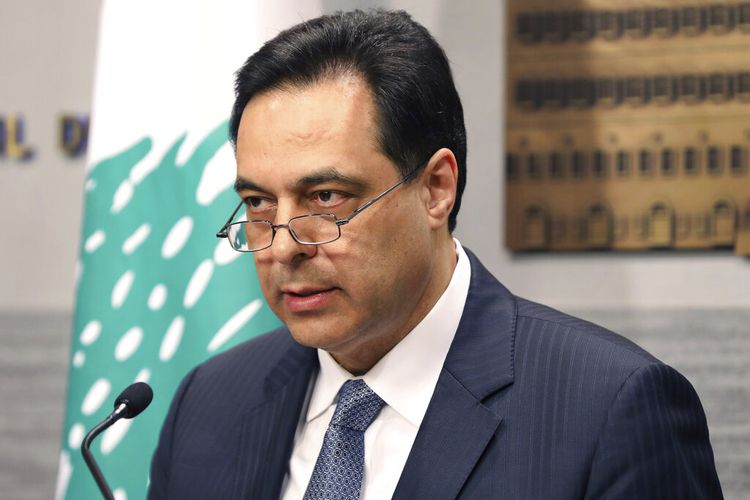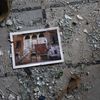Lebanon's PM Steps Down in Wake of Beirut Explosion and Public Fury

“I have discovered that corruption is bigger than the state and that the state is paralyzed by this (ruling) clique and cannot confront if or get rid of it,” Diab, who was a university professor at the American University of Beirut before he took the job.
Although Diab’s resignation had appeared inevitable after the catastrophe, he seemed unwilling to leave and only two days ago made a televised speech in which he offered to stay on for two months to allow for various factions to agree on a roadmap for reforms.
But the pressure from within his own Cabinet proved to be too much.
Diab’s government was formed after his predecessor, Saad Hariri, stepped down in October in response to the demonstrations.
It took months of bickering among the leadership factions before they settled on Diab.
His government, which was supported by Hezbollah and its allies and seen as one-sided, was basically doomed from the start, tasked with meeting demands for reform but made up of all the factions that reformers want out.

Now the process must start again, with Diab’s government in a caretaker role as the same factions debate a new one.
“I hope that the caretaking period will not be long because the country cannot take that. Let's hope a new government will be formed quickly,” Public Works Minister Michel Najjar told reporters. “An effective government is the least we need to get out of this crisis.”
The weekend protests saw clashes with security forces firing tear gas at protesters.
Read also: Protests in Lebanon as Public Anger Over Beirut Explosion Unfolds
The explosion is believed to have been caused by a fire that ignited a 2,750-ton stockpile of highly volatile ammonium nitrate.
The material had been stored at the port since 2013 with few safeguards despite numerous warnings of the danger.
The result was a disaster Lebanese blame squarely on their leadership’s corruption and neglect.
Losses from the catastrophic blast are estimated to be between $10 billion to $15 billion, with nearly 300,000 people left homeless.
The last decision taken by Diab’s government before its resignation was to refer the case of the explosion to the Supreme Judicial Council, which handles crimes infringing on Lebanon’s national security as well as political and state security crimes.



































